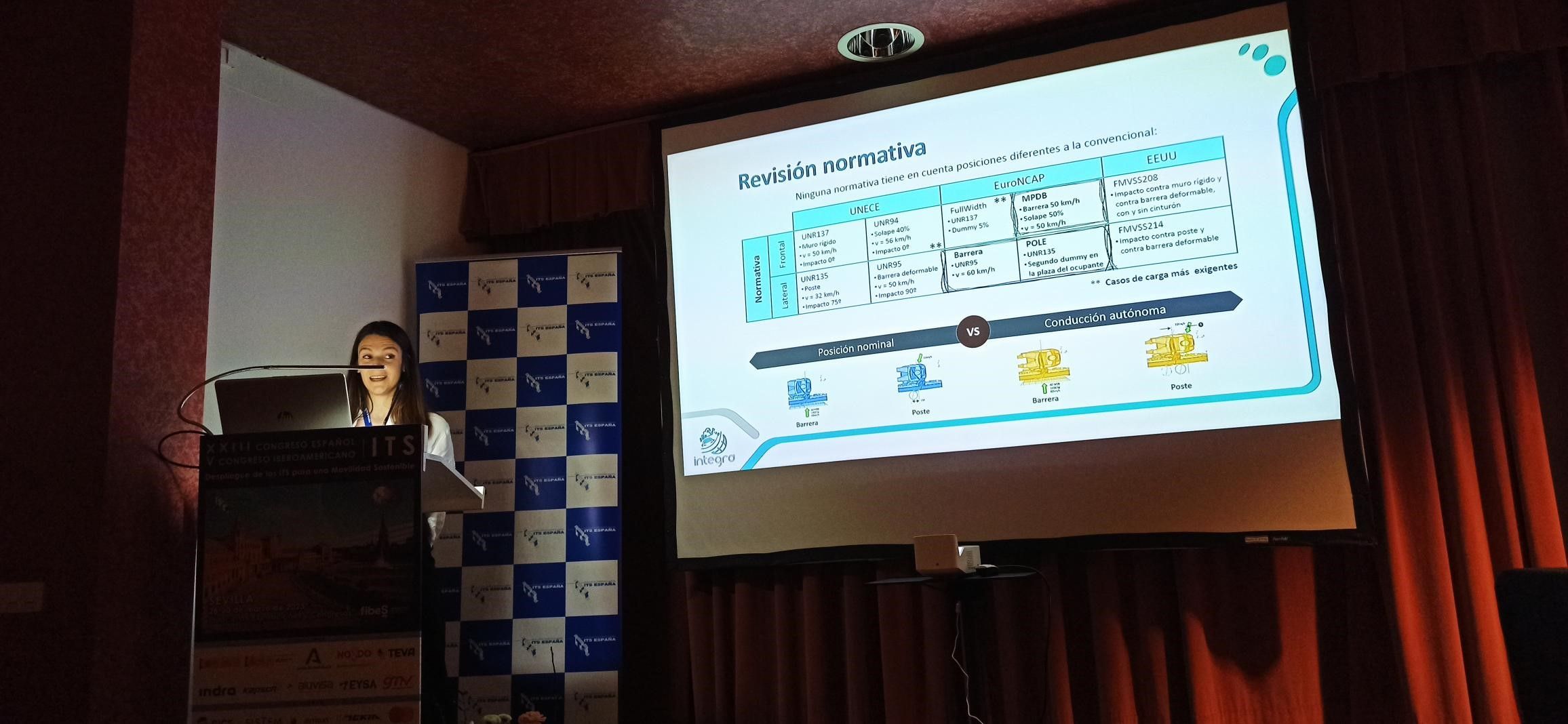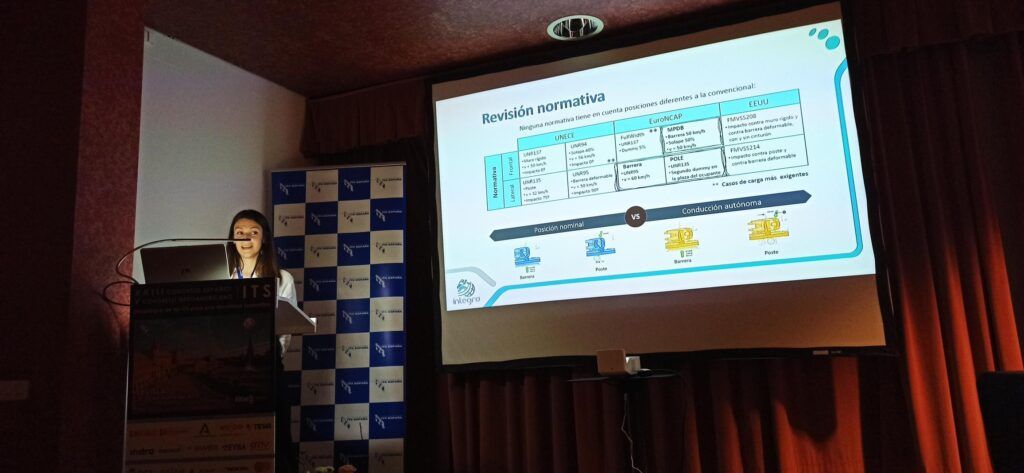
Last March 28th-30th, CIDAUT presented the new safety issues to consider in autonomous vehicles level 3 and 4 at the XXIII Spanish Congress and V Ibero-American Congress on Intelligent Transport Systems. In this annual meeting, where the most relevant key players from the Public Administration, Business and Academia meet to discuss the challenges of the current transport, CIDAUT exposed what means adopting new sitting postures in terms of occupant safety and how to address the inherent challenges to it. The topic was presented within the session “Integra Network: Automated and connected mobility” (March 29, from 12:00 pm), which provided an overview of the @INTEGRA project and the steps that have to be made to move towards ultra-safe fully connected and automated driving.
The lecture, entitled “Nuevos aspectos a considerar en material de seguridad en vehículos autónomos” and presented by the CIDAUT’s researches, reviewed the requirements to be met by the restraint systems in self driving cars and the expected improvement in terms of safety thanks to the deployment of these vehicles. Additionally, several solutions based on the application of intelligent transport systems were presented.
During the conference, special attention was paid to the urban scenarios and how they affect the development of self driving vehicles. Due to the fact that multiple actors coexist in these scenarios, there are still certain limitations to the proper operation of autonomous vehicles in complex urban areas; largely due to the extensive spectrum of potentially safety-critical situations. That is why there is a great deal of interest in them.
The @INTEGRA project, which was initiated at the beginning of 2021, focuses on this topic and the development of novel CCAM concepts and technologies which enable automated driving in complex areas. The project, which is funded by CDTI through Ministerio de Ciencia e Innovación in the frame of the funding for Excellence in Research Centres “Cervera”, involves four Spanish reference research centres: CTAG, CIDAUT, i2CAT and ITENE. CER – 2021 1031.
